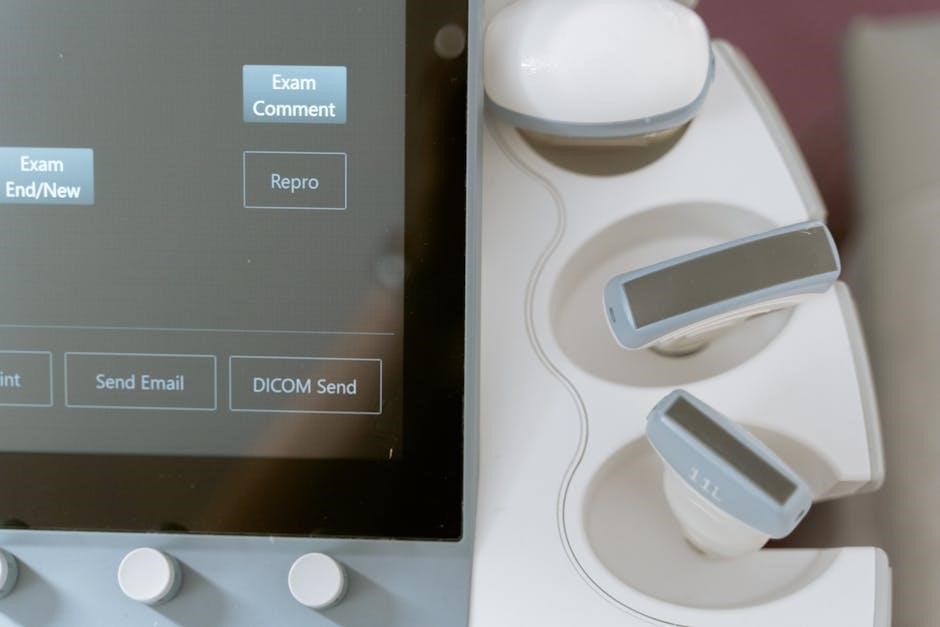The BKAT test is a critical assessment tool for critical care nurses, evaluating their understanding of fundamental principles and practices. It is widely recognized for its role in ensuring competency in intensive care settings. The test covers essential topics such as cardiac, respiratory, and neurological care, with resources like PDF guides and practice questions available for preparation. It serves as a benchmark for nurses seeking to demonstrate their expertise in critical care.
1.1 What is the BKAT Test?
The BKAT (Basic Knowledge Assessment Test) is a standardized evaluation tool designed to assess the foundational knowledge and skills of healthcare professionals, particularly in critical care nursing. It focuses on essential principles and practices in intensive care, including cardiac, respiratory, neurological, and metabolic patient management. The test is recognized for its comprehensive coverage of critical care topics, making it a valuable resource for nurses seeking to validate their expertise. Available study materials, such as PDF guides and practice questions, provide structured preparation for the exam. The BKAT test is widely used to identify knowledge gaps and ensure proficiency in high-stakes environments, such as ICUs. Its questions are carefully curated to reflect real-world scenarios, ensuring relevance and practical application. By emphasizing core competencies, the BKAT test plays a pivotal role in enhancing the quality of patient care in critical settings.
1.2 Importance of the BKAT Test in Nursing
The BKAT test holds significant importance in nursing, particularly in critical care, as it ensures nurses possess the essential knowledge and skills to deliver high-quality patient care. By assessing core competencies, it identifies gaps in understanding, enabling targeted education and improvement. The test is crucial for new nurses entering intensive care units, as it validates their readiness to handle complex patient scenarios. Experienced nurses also benefit, as it reinforces foundational knowledge and keeps them updated on best practices. The availability of study materials, such as PDF guides and practice questions, further enhances preparation. The BKAT test serves as a benchmark for competency, fostering confidence and professionalism among nursing professionals. Its focus on practical application ensures that nurses are well-equipped to address real-world challenges in critical care settings, ultimately contributing to better patient outcomes and safer care environments.
1.3 Role of the BKAT Test in Critical Care Nursing
The BKAT test plays a pivotal role in critical care nursing by ensuring nurses are proficient in managing life-threatening conditions. It evaluates their ability to apply critical thinking and evidence-based practices in high-stakes environments. The test focuses on key areas such as cardiac arrhythmias, respiratory failure, and neurological emergencies, ensuring nurses can provide timely and accurate interventions. By identifying knowledge gaps, the BKAT test helps in tailoring professional development programs, enhancing patient safety. Its emphasis on practical scenarios prepares nurses for real-world challenges, fostering a culture of continuous improvement. Resources like PDF guides and practice exams are invaluable for preparation, making the BKAT test an essential tool for maintaining high standards in critical care nursing. Ultimately, it contributes to better patient outcomes by ensuring nurses are equipped with the necessary skills to deliver expert care in intensive settings.
1.4 Relation of BKAT to Other Nursing Certifications
The BKAT test complements other nursing certifications by serving as a foundational assessment of critical care knowledge. While certifications like CCRN (Critical Care Registered Nurse) and PCCN (Progressive Care Certified Nurse) focus on advanced practice, the BKAT ensures a strong baseline understanding of core principles. It bridges the gap between general nursing education and specialized critical care certifications, making it a valuable precursor for nurses pursuing advanced credentials. The BKAT test aligns with the content of these certifications by covering essential topics such as cardiac, respiratory, and neurological care. By mastering the BKAT, nurses are better prepared to tackle the demands of more specialized certifications. Resources like PDF guides and practice tests further enhance this preparatory role, solidifying the BKAT’s importance in the broader landscape of nursing certification.

Structure of the BKAT Test
The BKAT test features a multiple-choice format, covering critical care topics like cardiac, respiratory, and neurological nursing. It includes 150 questions within a 180-minute timeframe, assessing foundational knowledge and practical application skills.
2.1 Format of the BKAT Test
The BKAT test is structured in a multiple-choice format, designed to assess critical thinking and application of knowledge. Each question presents several options, with only one correct answer. The test is divided into sections covering various aspects of critical care nursing, ensuring a comprehensive evaluation of a nurse’s competency. Time management is crucial, as candidates must answer all questions within the allotted timeframe. The format is straightforward, allowing candidates to focus on content rather than navigation. This standardized approach ensures fairness and consistency in assessing nursing professionals. By adhering to this format, the BKAT test maintains its reputation as a reliable measure of critical care nursing skills and knowledge.
2.2 Content Covered in the BKAT Test
The BKAT test encompasses a wide range of critical care nursing topics, ensuring a comprehensive assessment of a nurse’s knowledge. Key areas include cardiac care, such as ECG interpretation and acute myocardial infarction management, and respiratory care, focusing on ventilation and oxygen therapy. Neurological care is also emphasized, covering topics like mental status changes and cerebral edema. Additionally, the test addresses metabolic and endocrine disorders, including glucose management and diabetic emergencies. Patient assessment skills, such as identifying chest pain and managing emergencies like tPA administration, are also evaluated. The content is designed to reflect real-world scenarios, ensuring practical application of knowledge. By covering these essential areas, the BKAT test ensures that critical care nurses are well-prepared to handle complex patient situations effectively.
2.3 Types of Questions on the BKAT Test
The BKAT test features a variety of question types to assess critical thinking and clinical application skills. Multiple-choice questions are predominant, requiring test-takers to select the best answer from several options. These questions often present patient scenarios, such as chest pain or neurological changes, and ask for appropriate interventions. True or false questions evaluate knowledge of factual information, such as ECG changes in acute MI. Fill-in-the-blank questions test recall of specific details, like lead placements in ECGs. Additionally, some questions involve prioritization of actions, ensuring nurses can manage emergencies effectively; The mix of question types ensures a comprehensive evaluation of both knowledge and decision-making abilities, reflecting the complexities of critical care nursing. This variety helps identify a nurse’s readiness to handle real-world challenges in an ICU setting.
2.4 Duration and Number of Questions
The BKAT test typically consists of a comprehensive set of questions designed to assess a nurse’s critical care knowledge. While the exact number of questions and duration may vary, many versions of the exam include approximately 100 questions, covering a wide range of critical care topics. The test is designed to be completed within a specific time frame, usually around 2 to 3 hours, depending on the format and the organizing body. It is important for test-takers to manage their time effectively to ensure they can attempt all questions. The structure is rigorous, reflecting the high standards required in critical care nursing. Candidates are advised to consult official resources or practice materials for precise details on the number of questions and time allocation for their specific exam.

Preparation for the BKAT Test
Effective preparation for the BKAT test involves studying core critical care concepts, practicing with sample questions, and reviewing official study guides. Utilizing online resources and participating in forums can enhance readiness and confidence.
3.1 Recommended Study Materials for the BKAT Test
Several study materials are highly recommended for preparing for the BKAT test, including official PDF guides, practice question sets, and comprehensive review documents. These resources cover critical care topics such as cardiac, respiratory, and neurological nursing. Many candidates utilize PDF downloads from platforms like Docsity, which offer actual exam questions with verified answers. Additionally, flashcards and study sets available on NursingHero provide focused revision tools. Documents like the BKAT Critical Care Review Exam 2023 with 100 Correct Answers.pdf and BKAT 9R Exam 2023.pdf are popular choices, offering detailed insights and practical examples. These materials help candidates assess their knowledge gaps and improve their understanding of essential care principles. Leveraging these resources ensures a well-rounded preparation for the test.
3.2 Effective Study Strategies for the BKAT Test
Effective study strategies for the BKAT test involve a structured and consistent approach to ensure comprehensive preparation. Candidates are advised to begin by thoroughly reviewing critical care nursing fundamentals, focusing on high-yield topics such as cardiac care, respiratory management, and neurological assessments. Utilizing practice tests and flashcards is highly recommended, as they help identify knowledge gaps and reinforce key concepts. Allocating dedicated time for each subject area ensures a balanced study plan. Additionally, engaging with online forums and study groups can provide valuable insights and tips from experienced nurses. Regular revision of notes and practice materials, such as the BKAT Critical Care Review Exam 2023 with 100 Correct Answers.pdf, enhances retention. Prioritizing active learning techniques, like solving practice questions and participating in discussions, further optimizes study efforts. Maintaining a routine and staying organized are crucial for achieving success on the BKAT test.
3.3 Role of Practice Tests in BKAT Preparation
Practice tests play a pivotal role in BKAT preparation by simulating real exam conditions and assessing readiness. They help identify knowledge gaps, allowing focused study on weak areas. Regularly taking practice tests improves time management and reduces test-day anxiety. Many resources, such as the BKAT Critical Care Review Exam 2023 with 100 Correct Answers.pdf and BKAT 9R Exam 2023.pdf, offer authentic questions that mirror the actual test format. Candidates can evaluate their performance, track progress, and refine their strategies. Additionally, practice tests enhance familiarity with question types, such as multiple-choice and scenario-based problems, ensuring confidence during the exam. Utilizing these tools is essential for achieving a high score and demonstrating proficiency in critical care nursing. They are a cornerstone of effective preparation, providing a practical way to apply theoretical knowledge and build exam readiness.

3.4 Utilizing Online Resources and Forums
Online resources and forums are invaluable for BKAT preparation, offering a wealth of study materials and interactive tools. Websites like Docsity provide access to PDF guides such as the BKAT Critical Care Review Exam 2023 with 100 Correct Answers.pdf and BKAT 9R Exam 2023.pdf, which include verified questions and answers. Platforms like Quizlet offer flashcards for memorizing key concepts, such as ECG changes in acute MI or initial measures for chest pain. Nursing-specific forums allow candidates to share strategies, discuss challenging topics, and gain insights from experienced professionals. These platforms also host discussions on common pitfalls and tips for mastering different question types. By leveraging online resources, candidates can access updated materials, engage with peers, and refine their test-taking skills. Such tools not only enhance knowledge retention but also build confidence, making them essential for a successful BKAT preparation journey.

Scoring and Interpretation
The BKAT test is scored based on correct answers, with passing benchmarks varying by institution. Understanding your score helps identify knowledge gaps, ensuring focused improvement in critical care competencies.
4.1 How the BKAT Test is Scored
The BKAT test scoring is based on the number of correct answers provided by the candidate. Each question is weighted equally, and there is no negative marking for incorrect responses. The test evaluates critical care knowledge, with scores reflecting a candidate’s mastery of key concepts. The scoring system is designed to assess both theoretical understanding and practical application of critical care principles. Results are typically presented as a percentage or a pass/fail designation, depending on the institution’s criteria. Some versions of the test may adjust scoring based on question difficulty, ensuring a fair assessment of knowledge. The final score is compared against established benchmarks to determine competency levels. This scoring method ensures that nurses are adequately prepared to handle the demands of critical care environments. Understanding the scoring mechanism helps candidates focus their study efforts effectively.
4.2 Understanding Your BKAT Test Results

Your BKAT test results provide a detailed overview of your performance, highlighting strengths and areas for improvement. The results typically include an overall score and category-specific scores, reflecting your mastery of critical care topics. Each question is evaluated for accuracy, and the final score is calculated based on the number of correct answers. The results may also include benchmarks or percentile rankings to help you gauge your performance relative to others. Understanding your results is crucial for identifying knowledge gaps and focusing your study efforts. Many resources, such as PDF guides and practice tests, offer answer explanations to help you learn from mistakes. By analyzing your results, you can develop a targeted study plan to address weaknesses and improve future performance. This insights-driven approach ensures continuous learning and professional growth in critical care nursing.
4.3 Passing Scores and Benchmarks
The passing score for the BKAT test is typically determined by the administering organization and may vary slightly depending on the version. Generally, a score of 70-75% is considered passing, reflecting a strong understanding of critical care principles. Benchmarks are established to ensure consistency and fairness in assessment. These benchmarks are often derived from the performance of a large group of nurses, providing a reliable measure of competency. Achieving a score above the benchmark indicates a high level of knowledge, while scoring below may highlight areas for improvement. Many resources, such as PDF guides and practice tests, provide sample questions and answers to help nurses gauge their readiness. Understanding the passing score and benchmarks is essential for setting realistic goals and preparing effectively for the exam. These standards ensure that nurses meet the expected level of expertise in critical care settings.
4.4 Common Mistakes to Avoid
Several common mistakes can hinder success on the BKAT test. One major error is mismanaging time during the exam, leading to incomplete answers. Many candidates also struggle with interpreting complex clinical scenarios, such as ECG changes in acute MI; Overlooking key details in questions can result in incorrect answers. Additionally, some nurses may rely too heavily on memorization without understanding the underlying concepts, which can cause confusion. Another pitfall is ignoring practice tests, which are crucial for identifying knowledge gaps. Candidates should also avoid guessing excessively, as it can lower their overall score. Proper preparation, including reviewing PDF guides and study materials, is essential to minimize these mistakes. By addressing these common errors, nurses can approach the BKAT test with confidence and improve their chances of achieving a passing score. Recognizing these pitfalls helps in developing a more effective study strategy and test-taking approach.

Top Tips for BKAT Success
Focus on consistent study, practice with realistic tests, and master time management. Prioritize understanding over memorization, review weak areas, and stay calm during the exam. Utilize official resources and peer support for optimal preparation.
5;1 Time Management During the BKAT Test
Effective time management is crucial for success on the BKAT test. Allocate a set amount of time to each question, ensuring you complete the entire exam without rushing. Start with questions you are confident about to secure early points. For complex questions, consider skipping them initially and returning later. Use the process of elimination to narrow down answer choices when unsure. Avoid spending too much time on a single question, as this can impact your ability to answer others. Practice timed mock tests during preparation to build familiarity with the pacing and structure. This strategy will help you stay calm, efficient, and focused throughout the exam.
5.2 Mastering Different Question Types
Mastering various question types on the BKAT test is essential for achieving a high score. The test includes multiple-choice questions, case-based scenarios, and true/false statements, each requiring distinct strategies. For multiple-choice questions, focus on eliminating incorrect answers to increase your chances of selecting the right one. Case-based scenarios demand careful reading and prioritization of key details. True/false questions require precise knowledge, as partial truths can lead to errors. Practice each question type extensively to build familiarity and confidence. Reviewing sample questions and explanations will help you understand common formats and improve your problem-solving skills. By tailoring your approach to each question type, you can optimize your performance during the exam.
5.3 Managing Stress on Test Day
Managing stress on the day of the BKAT test is crucial for optimal performance. Begin by arriving early to the test center to avoid last-minute anxiety. Practice deep breathing exercises to calm your nerves before starting the exam. Stay hydrated and bring snacks to maintain energy levels throughout the test. Avoid overthinking or second-guessing yourself; instead, focus on tackling each question methodically. If you encounter a difficult question, skip it and return later to prevent wasting time. Maintain a positive mindset and remind yourself of your preparation. Utilize the resources you’ve studied, such as practice tests and PDF guides, to build confidence. Remember, stress can impair focus, so take short breaks between sections if allowed. By staying calm and composed, you can approach the test with clarity and maximize your chances of success.
5.4 Importance of Revision and Practice
Revision and practice are essential for achieving success on the BKAT test. Regularly reviewing study materials, such as PDF guides and practice tests, helps reinforce critical care concepts and identifies knowledge gaps. Consistent practice enables nurses to familiarize themselves with the test format, including question types and time constraints. By repeatedly tackling sample questions, test-takers can refine their problem-solving skills and build confidence in applying their knowledge under pressure. Additionally, revising key topics like cardiac care, respiratory management, and neurological assessment ensures a strong foundation for the exam. Utilizing resources like flashcards and study aids further enhances retention and understanding. The more one practices, the better prepared they will be to approach the test with clarity and precision, ultimately improving their performance and chances of success.

BKAT Test Resources
Official BKAT test resources include study guides and practice tests, while community forums and PDF guides provide additional support for comprehensive preparation and understanding of critical care concepts.
6.1 Official BKAT Test Resources
Official BKAT test resources are essential for effective preparation and include comprehensive study materials like the BKAT Critical Care Review Exam with 100 correct answers. These resources are designed to mirror the actual test format and content, ensuring candidates are well-prepared. Platforms like Docsity offer downloadable PDF guides, such as the BKAT 9R Exam with verified solutions, providing detailed insights into critical care topics. Additionally, official study sets and practice tests are available on educational websites like NursingHero, covering cardiac, respiratory, and neurological care. These resources are curated to address knowledge gaps and enhance understanding of fundamental concepts. They are widely recommended for nurses aiming to excel in critical care settings and are regularly updated to reflect current practices and standards. Utilizing these resources ensures a structured and focused approach to mastering the BKAT test requirements.
6.2 Community and Peer Support for BKAT Preparation
Community and peer support play a vital role in BKAT preparation, offering candidates valuable resources and encouragement. Online forums and study groups provide platforms for nurses to share study materials, discuss challenging topics, and exchange strategies. Websites like Docsity and NursingHero host a wealth of user-generated content, including PDF guides and practice tests, which are freely accessible. Additionally, peer discussions on critical care concepts, such as cardiac and respiratory care, help clarify doubts and reinforce learning. Many candidates also benefit from flashcard decks on platforms like Quizlet, which cover key terms and concepts. Engaging with peers who have taken the test can provide insights into common pitfalls and effective study techniques. This collective support system not only enhances preparation but also fosters a sense of camaraderie among aspiring critical care nurses, making the journey to BKAT success less isolating and more manageable.
6.3 Additional Learning Materials for BKAT Success
Beyond official resources, additional learning materials are essential for comprehensive BKAT preparation. PDF guides, such as the BKAT Critical Care Review Exam and BKAT 9R Exam, offer detailed insights and verified answers to practice questions. These documents, available on platforms like Docsity and NursingHero, cover critical care topics such as cardiac, respiratory, and neurological nursing. Flashcards and study sets on platforms like Quizlet provide quick and effective ways to memorize key terms and concepts. University resources, such as those from Walden University and Technical University of Mombasa, also offer valuable study notes and practice exams. These supplementary materials help candidates deepen their understanding and refine their test-taking strategies, ensuring they are well-prepared for the exam.
6.4 Recommended PDF Guides and Study Aids
Several high-quality PDF guides and study aids are available to support BKAT preparation. The BKAT Critical Care Review Exam 2023 with 100 Correct Answers and BKAT 9R Exam 2023 are highly recommended, offering comprehensive practice questions and detailed solutions. These resources, accessible on platforms like Docsity and NursingHero, cover critical care topics such as cardiac, respiratory, and neurological nursing. Additionally, ICU BKAT Test Questions and Answers provides realistic exam scenarios, helping candidates familiarize themselves with the test format. Flashcards and study sets from Quizlet further enhance memorization of key concepts. These materials are designed to supplement official resources, ensuring a well-rounded preparation strategy. By utilizing these PDF guides and study aids, candidates can gain confidence and improve their performance on the BKAT test.
